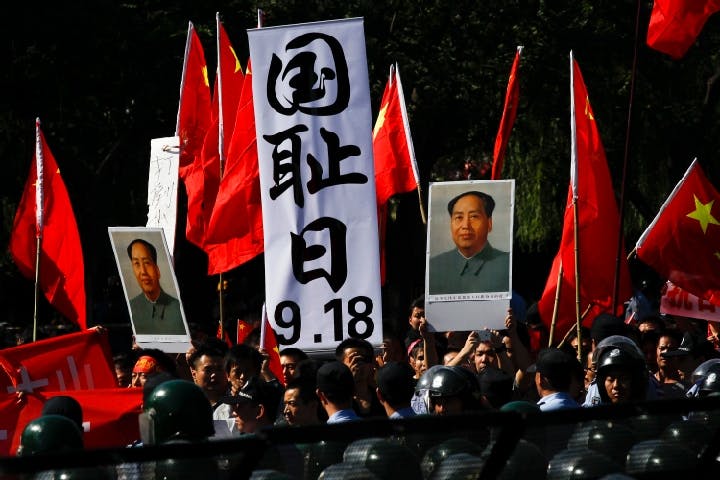Fall 2020
The Past's Transformative Power
– Zheng Wang
The politics of historical memory determine China’s present. Will they set the course for its future?
How past events are recollected and represented is known as “historical memory.” It is the glue that helps hold civilizations and nation-states together.
Historical memory is particularly powerful in China. Not only does it hold the nation together, but it provides the key to understanding Chinese nationalism and China’s intentions.
At the center of China’s historical consciousness is the so-called “century of humiliation.” The Chinese see the period beginning with the First Opium War (1839–1842) and ending with the Sino-Japanese War of 1945 as a period when their nation was attacked, bullied, and torn asunder by imperialists.
This period has been cemented into Chinese life with a single phrase: Wuwang Guochi (“Never Forget National Humiliation”). It is a slogan whose four Chinese characters are engraved on many monuments and painted on walls across the entire nation.
When I decided to write a book about how historical memory provides essential raw material to construct China’s national identity and shape the projection of Chinese power, this phrase seemed apt for the title. Never Forget National Humiliation: Historical Memory in Chinese Politics and Foreign Relations was published in 2012.
My book posed two main questions: How did the Chinese Communist Party (CCP) not only survive, but thrive, after the 1989 Tiananmen Square crackdown? And why did the young Chinese who protested dictatorship and demanded democracy in the 1980s shift so quickly to protesting Western hostility towards China in the 1990s?
Historical memory provides essential raw material to construct China’s national identity and shape the projection of Chinese power.
Historical memory offers important explanations for these unusual events. Following its ideological bankruptcy in 1989, the CCP launched a vast social project – the “Patriotic Education Campaign” – that pushed the period of national humiliation to the center of China’s history education and domestic discourse. The aim was to glorify the Party, reestablish its legitimacy, and justify one-party CCP rule in the post-Tiananmen and post-Cold War era.
It worked. Indeed, it worked so well that the events of the past eight years since I published my book have come as a surprise, even to me.
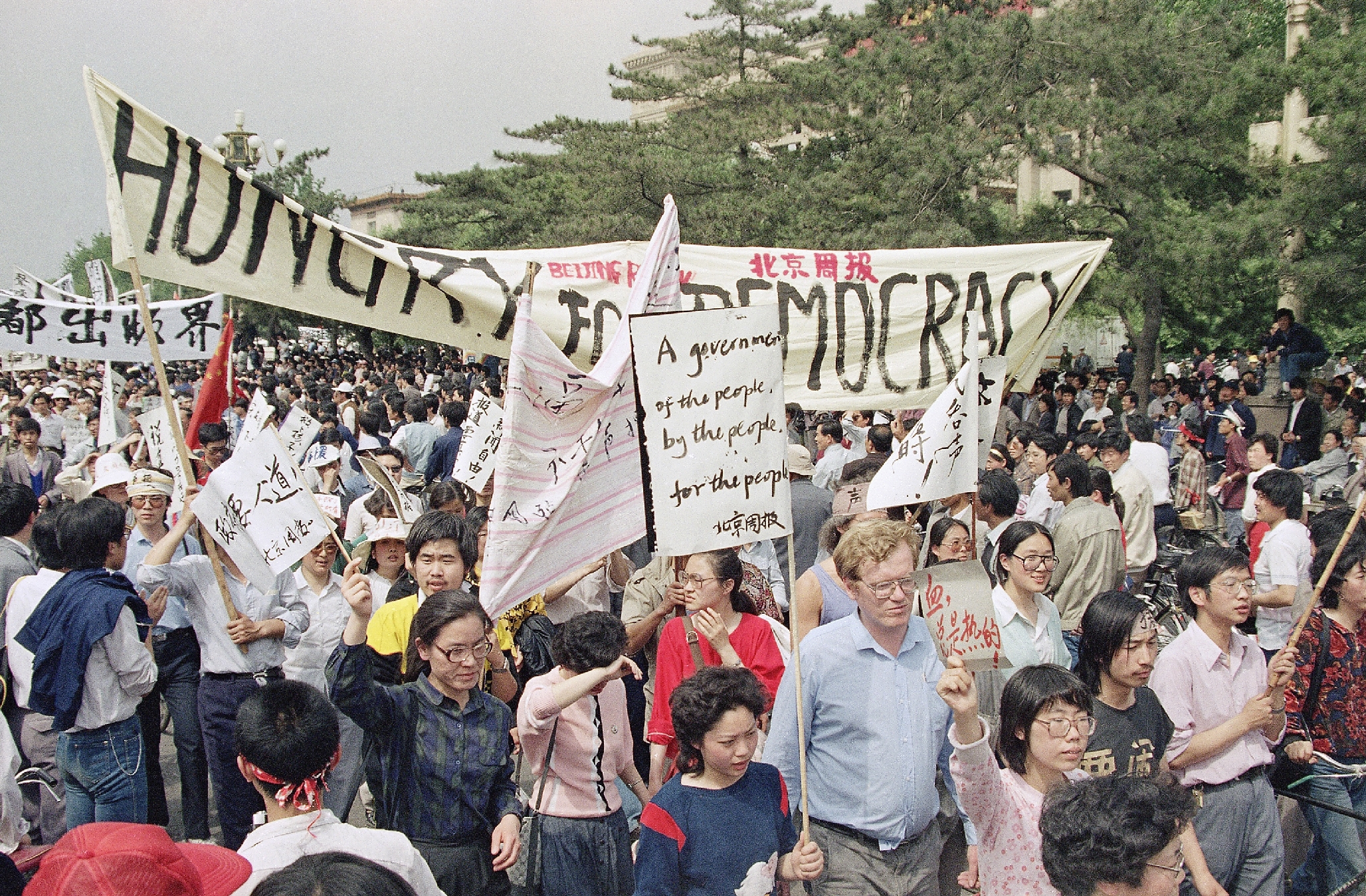
Upon completing the book, I thought that today’s young people who grew up in a prosperous and powerful China might not be influenced easily by long-ago traumas. But the political usage of historical memory has reached new levels that are probably unparalleled in human history. China has been transformed into a different country. And Chinese nationalism has evolved as well.
And once historical memory is embedded in political institutions and social discourse, it becomes more powerful than a mere narrative. It transforms ideas to beliefs, and creates roadmaps that define groups and national objectives.
One needs only to look at a Chinese foreign policy that is increasingly being described as “assertive” and “aggressive” in the South China Sea, Belt and Road Initiatives, and in its bilateral relations with the U.S. – and redoubled efforts to suppress internal and peripheral crises in Hong Kong, Taiwan, or Xinjiang – to see these effects.
A Textbook Case
China’s Patriotic Education Campaign began in 1991, shortly after the Tiananmen Square crisis. After Xi Jinping became China’s leader in November 2012, his administration made tremendous efforts towards further institutionalizing patriotic education.
One key effort towards this end was the nationwide unification of textbooks. This project aimed to homogenize textbook use for each grade in the primary, middle and high schools across the country.
In 2012, the Ministry of Education maintained a unified curriculum for all public schools in China, but allowed different provinces to choose textbooks from a small number of permitted selections. But five years later, the whole country began to use the same textbooks for three subjects: History, Chinese Language and Moral Education.
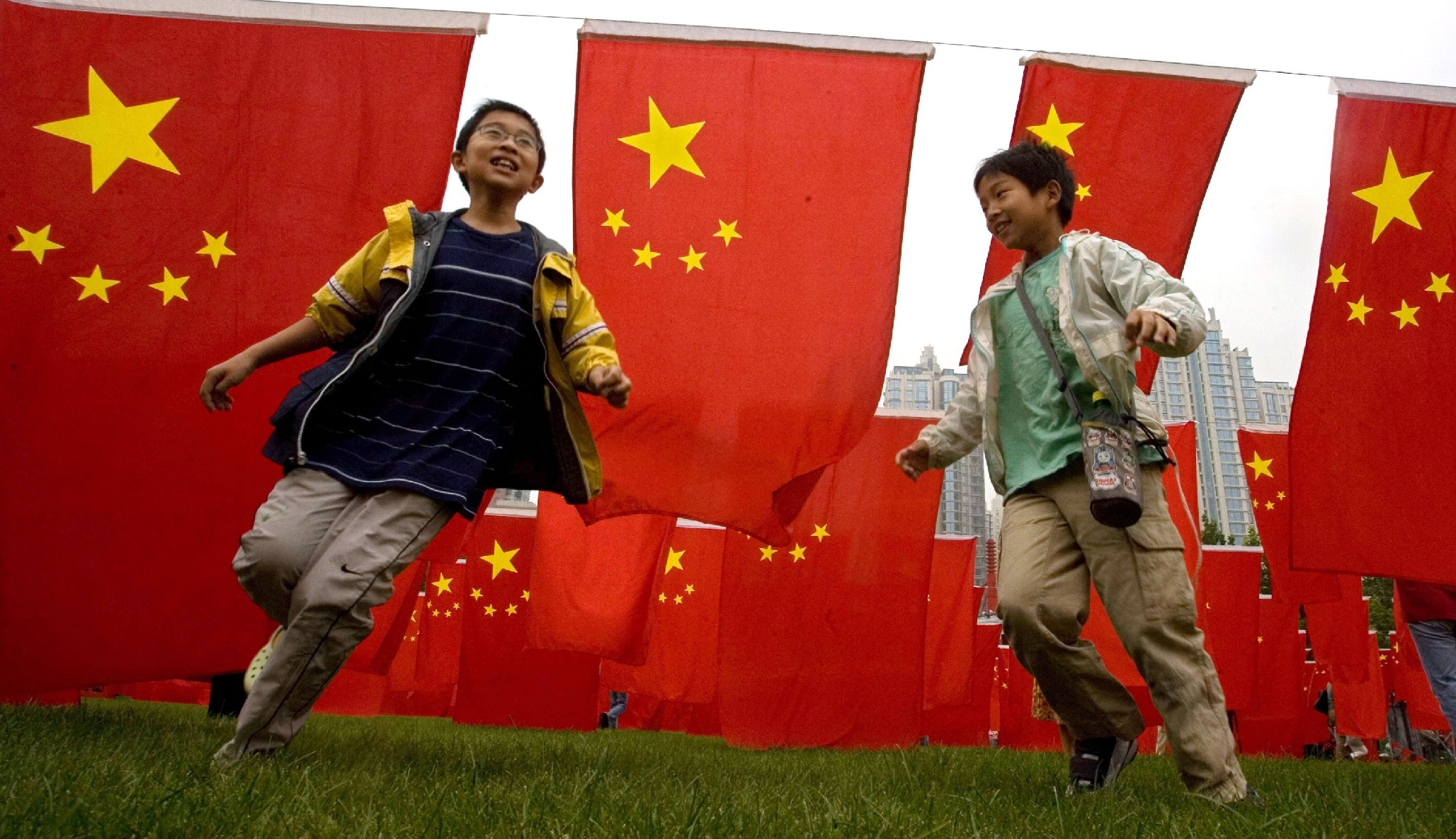
Since the reform was focused initially on ideology and identity education, the textbooks for these three subjects were prioritized. By Fall 2020, however, uniform textbooks for all subjects were available in all Chinese high schools across the country.
Following the reform, students found that their history books had become very different. In the previous official eighth-grade Chinese history textbook, four pages focused on the Cultural Revolution (1966-1976) – and labeled it as a mistake made by Chairman Mao. But new history textbooks dramatically reduced and modified this content. In today’s version, the Cultural Revolution is only mentioned on one page. And the reference to Chairman Mao’s mistake? Removed.
History textbooks published in 2019 saw a significant increase in content related to patriotic education, and especially territorial issues. According to a new study by The Initium, there was a substantial increase in content related to the South China Sea, Taiwan, Diaoyu/Senkaku Islands, Hong Kong and Macau. The South China Sea Islands were mentioned 31 times, Taiwan and Diaoyu/Senkaku Islands 30 times, and Hong Kong and Macau ten times. The textbook also included a special column on these territorial issues to discuss how they belonged to China, and had been its rightful possessions since ancient times.
Reaching Into Pop Culture
Yet the CCP believes that modifying school education alone is insufficient, and Chinese leaders have extended the campaign more deeply into popular culture, entertainment, and other aspects of daily life.
Previously, regular visits to selected memory sites, museums, and monuments for patriotic education were undertaken only by students and government employees. But over the last eight years, visits to so-called “red” (CCP color) memory sites have become essential for all citizens – including China’s new class of entrepreneurs and self-employed business owners.
Visits made by Chinese business tycoons create some interesting juxtapositions. Tencent President Pony Ma wore the Red Army’s earliest regalia, including a cap with a red star in its center, when he visited Yan’an in Shaanxi province – the site of the CCP’s headquarters during the Sino-Japan War. Pictures of Ma leading his company’s executives in a uniform worn by troops in the 1920s and 1930s were widely shared across Chinese social media.
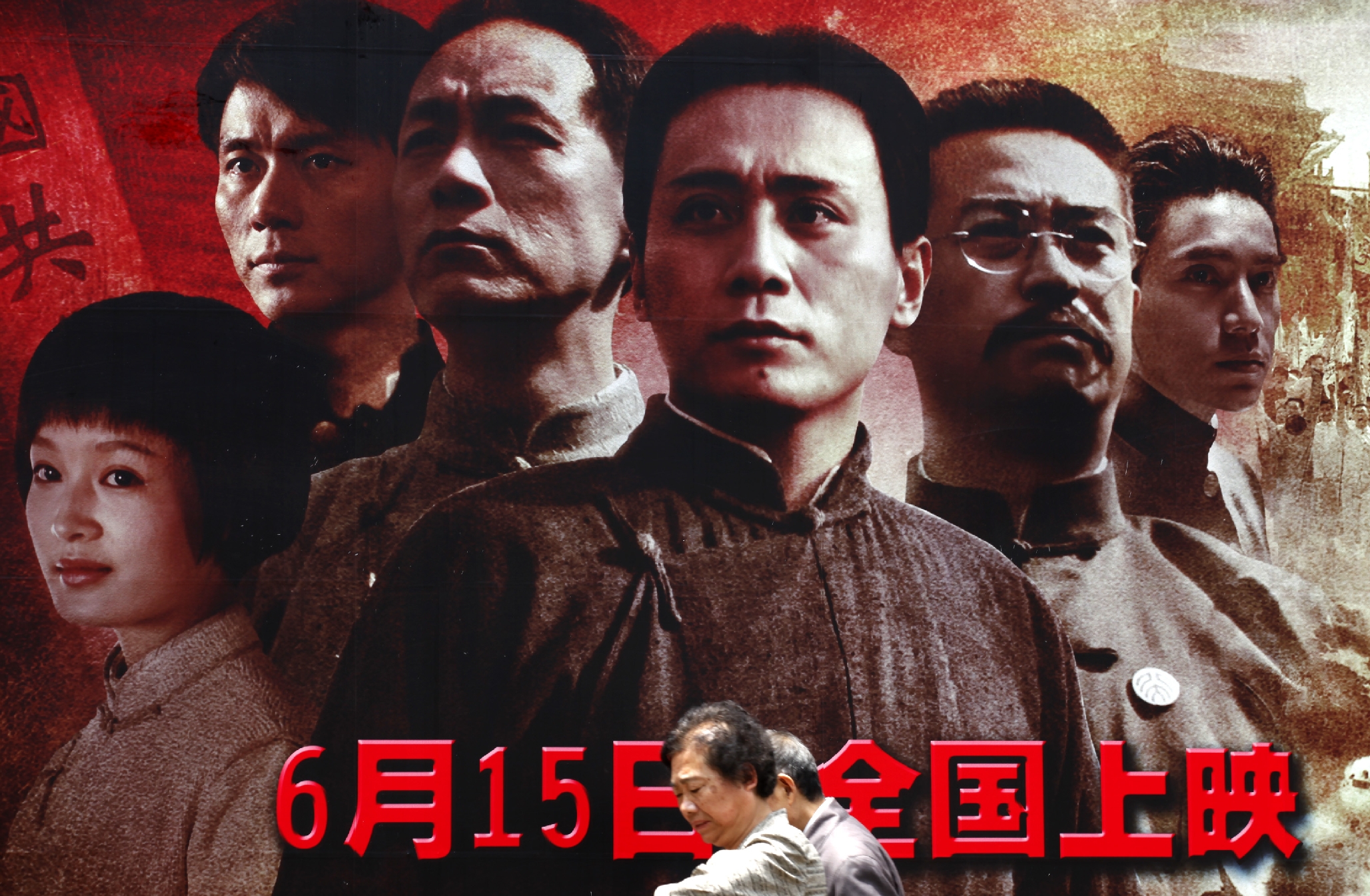
An even more uncomfortably comic scene was created when Leong On-kei, the wife of Macau’s gambling kingpin Stanley Ho, led a group of over 60 of her casino executives, to Jinggangshan in East China’s Jiangxi Province, which is the birthplace of the Red Army. Her group also wore the Red Army uniform for a week of patriotic education courses, which is interesting in part because gambling remains illegal in mainland China. Many of China’s newly rich and business corporations seem eager to showcase their loyalty and patriotism to the CCP publicly, no matter what business they pursue.
Patriotic education has penetrated to unthinkable depths within popular culture over the past eight years, including the production of numerous patriotic soap operas and television series. Mocked by many viewers as “Resisting-Japan Bizarre Dramas,” these movie and television productions often portray the Communist-led anti-Japanese forces during the Sino-Japan war (1931-1945) in the most hagiographic and self-glorifying light. The storylines also traffic in unrealistic and ridiculous plots, such as a CCP soldier tearing a Japanese soldier into half using only his bare hands.
The ubiquity of these programs raises an important point. Visitors to China who turn on television cannot avoid such fare. These dramas are telecast throughout the day. One critic of my book pointed out that official patriotic education is like a radio program that youngsters can switch off if they do not like it. But the institutionalization of patriotic education at so many levels of Chinese life argues against this view. These programs are available anytime and everywhere. There are a part of Chinese daily life that can never be switched off.
Making the "China Dream" A Reality
China’s ruling apparatus is pursuing every opportunity to extend patriotic education. Even in a time of pandemic.
In July 2020, after China effectively controlled the spread of the coronavirus, the Party immediately informed all schools to use the anti-coronavirus campaign as “a vivid lesson” for patriotic education. In September, China organized a huge ceremony to celebrate the success of its campaign against the COVID-19 pandemic. The propaganda activities included comparisons of Chinese efforts with those of the U.S. and other countries, which highlighted the incompetence of foreign governments, and depicted China’s governance system and leadership as more advanced.
The creation of new national memorial days is also a key element in the campaign. In 2014, Xi Jinping decreed the creation of two new public anniversaries: December 13 became the annual national “Memorial Day for the Nanjing Massacre,” and September 3 became the national anniversary of “Victory Day of the Chinese People’s War of Resistance Against Japanese Aggression.”
New commemorative activities are conducted across China to underscore the importance of these days. On December 13, at 10 A.M., for instance, bells and sirens begin ringing in Nanjing and many Chinese cities. People are expected to stop whatever they are doing when this happens, irrespective of whether they are driving or walking on the road. In recent years, these events have become highly institutionalized and formalized.
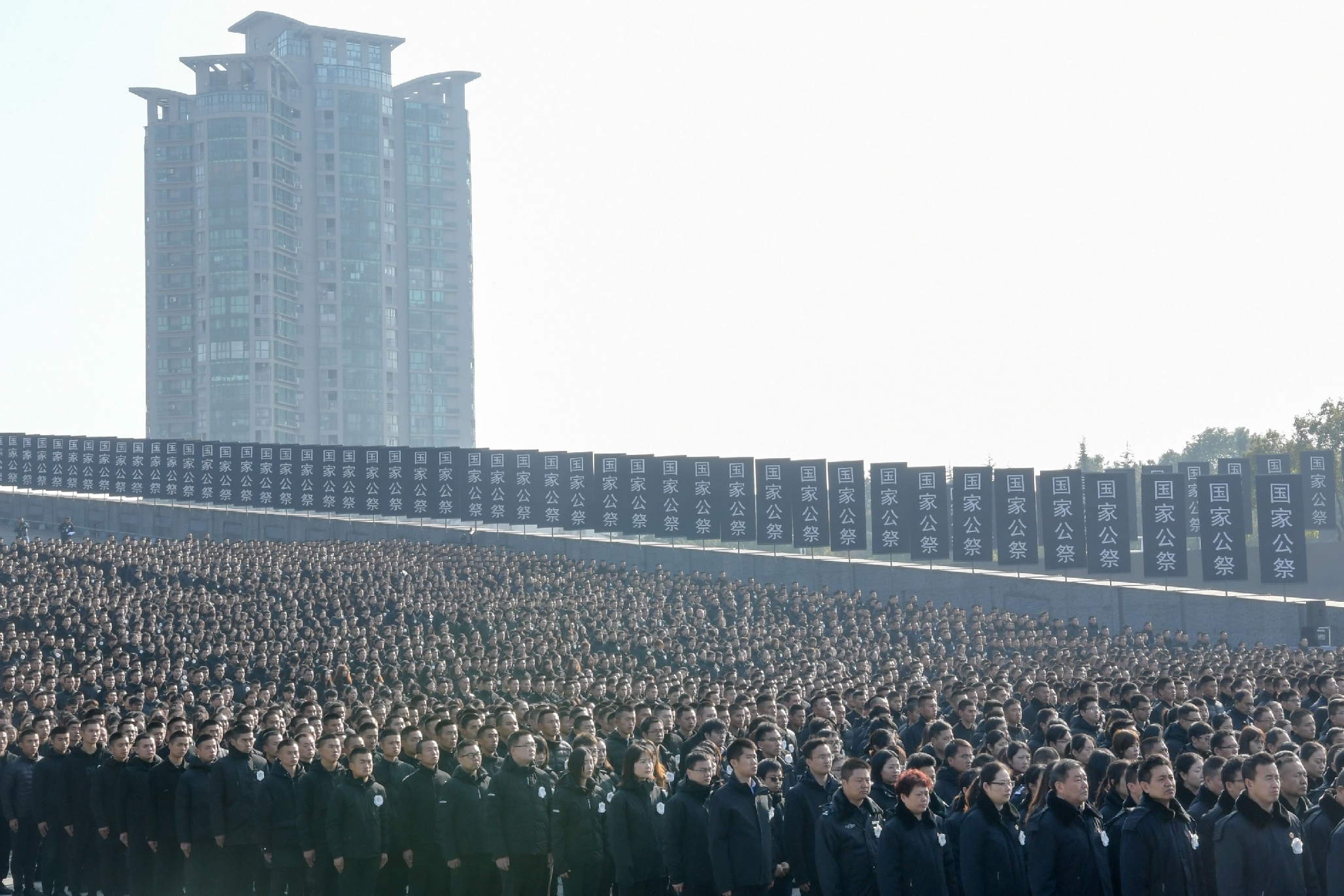
The definition of national objectives by China’s government has been one of the most important steps taken to institutionalize historical memory. Immediately after becoming China’s top leader, Xi Jinping used public speeches to present a new national goal – the China Dream – as his administration’s main policy platform. The CCP promotes the China Dream narrative as the new leadership’s mission statement and as its guide to the country’s future.
President Xi places a great “rejuvenation” of the Chinese nation at the center of the program. This language is important. The term “rejuvenation” is closely tied with the century of humiliation narrative. Xi’s program aims to end China’s national humiliation, bring the nation to the center of the world stage, and make it a prosperous, powerful nation that enjoys global respect and great power status. And while this dream includes many diverse elements, Taiwan’s return to China is on the top of the list.
The CCP promotes the China Dream narrative as the new leadership’s mission statement and as its guide to the country’s future.
The historical memory of national humiliation was the primary content in both the initial patriotic education campaign of the 1990s and 2000s, and the new education initiatives imparted since 2012. So what has changed in the last eight years?
This humiliation narrative now has been systematically connected with China’s future objectives. The emphasis has shifted from a passive, traumatized representation to an active future role for China. Xi upgraded the narrative from a propaganda tool to the signature ideology of the CCP, signaling how integral it is to the “China Dream” narrative. The new approach focuses on further strengthening the nation, and making China stronger, wealthier and assertive. The past eight years have demonstrated a very clear correlation between shifts in the use of historical memory and the changes in China’s foreign policy behavior.
Memory as the Engine of Paradox
Historical memory in China is a very complicated process. It is crucial to avoid oversimplifications.
China’s history as a nation-state is very short. But its civilization is a story that spans over 3,500 years. Prior to 1911, when the Republic of China was formally established, Chinese people believed in universalism. They had no conception of a nation-state. With a firm belief in the concept of “All under Heaven,” China viewed other states and their people as barbarians.
This faith in universalism was destroyed by imperialist gunboats, sparking that century of humiliation. China’s journey as a nation-state commenced with the sharp trauma of foreign invasions and national survival crises. The Chinese people turned from universalism to radical nationalism for survival.
It is easy for outside observers to conclude that the Chinese government instrumentally uses national trauma of the century of humiliation for propaganda purposes, and that Chinese citizens are easily influenced or brainwashed by it. And the patriotic education campaigns which I have described are, without a doubt, government propaganda.
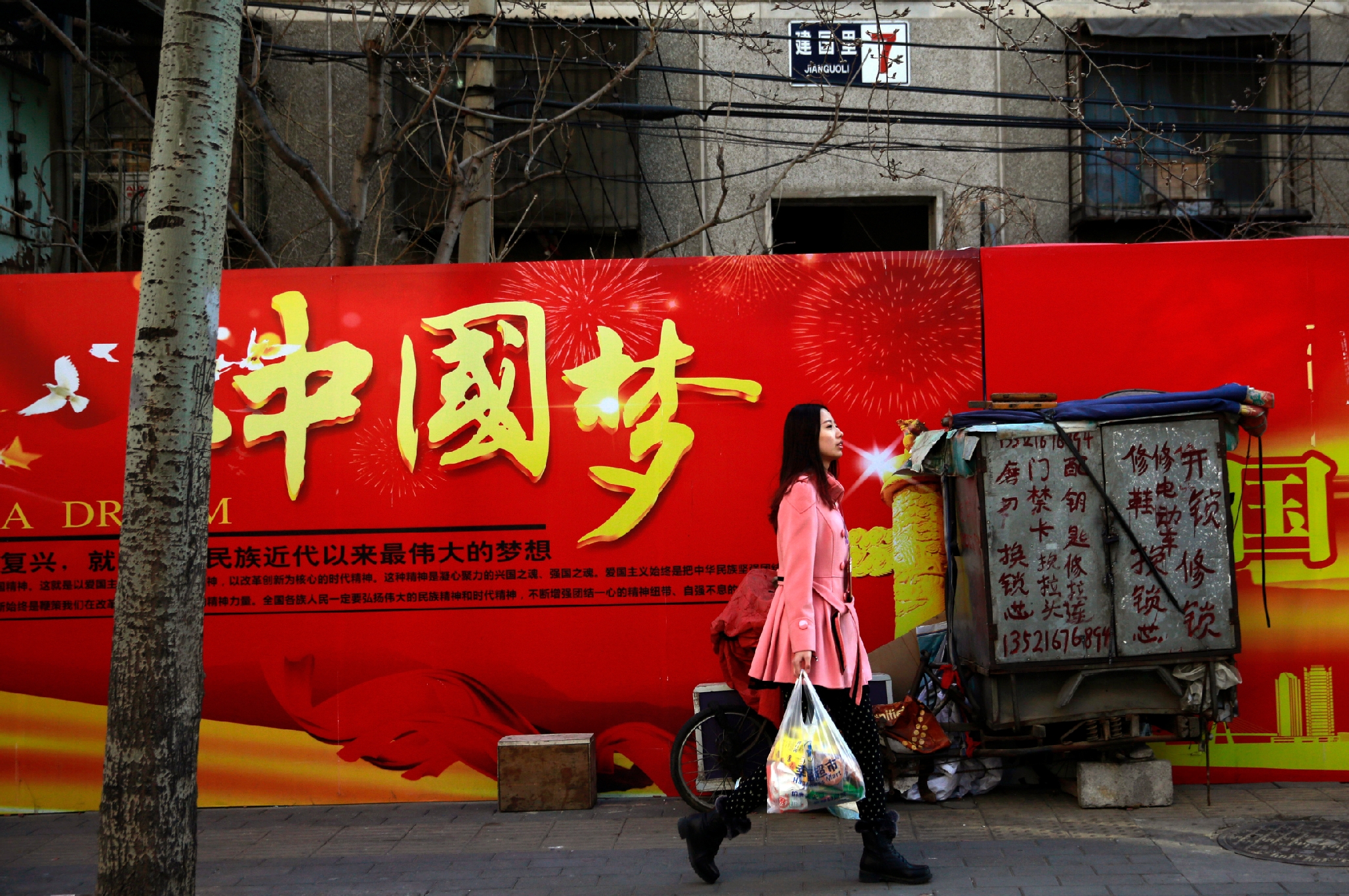
But the actual historical events of the “century of humiliation” contained in Chinese history textbooks, and the items displayed in museums, are not made up or manufactured. The full picture of Chinese history may not be presented, but the violence and war crimes were real – as was the trauma inflicted on millions of Chinese families.
Modern China faces two fundamental historic tasks: The first is to build an independent, strong, and prosperous state to end the century of humiliation. The second is to build a democratic constitutional republic to complete China’s transformation from a backward feudal system to a modern, well-respected nation.
Patriotic education’s powerful impact isn’t derived only from the CCP’s exceptional propaganda campaigns. The history of humiliation is the starting point as well as the destination for both tasks. Past humiliation is used to define the nation’s future objectives. President Xi has connected passive memories with a new and active mission statement and policy.
The Chinese people turned from universalism to radical nationalism for survival.
The effectiveness of historical memory about the century of humiliation in unifying China is why various generations of Chinese leaders have chosen it as a policy platform and a mobilization tool. Yet it has also created two crucial paradoxes with which China must contend:
1. A paradox between one-Party rule and democracy: A strong state and a democratic society are not contradictory. Democracy is an essential element of nation building. Yet China’s rise as an independent, unified, and strong state in recent decades has been achieved through an authoritarian one-party leadership structure. Many Chinese still remember old China as “a pan of loose sand” that didn’t stick together. China’s recent success provides the CCP with a justification to continue one-party rule. Those desiring the national rejuvenation of the “China Dream” see a centralized strong leadership as necessary for a strong and well-coordinated state, and something that might not be possible in a democracy.
The CCP has often used other countries as examples to drive this point home. India provides a picture of how a democratic system might not be suitable for a large and ethnically-diverse population. The pandemic response in the United States is used as evidence that China’s current political and governance system make it superior to the U.S. in navigating public health – and in other ways.
2. A paradox between nationalism and democracy: In most democratic societies, nationalism is considered to be a negative force. Yet the Chinese revolution of the past century has been driven by strong nationalism, and China’s independence and unification were achieved under the leadership of a strongly nationalistic political party. This historic background provides a justification that nationalism is a positive force. Many Chinese, including some senior intellectuals, consider nationalism as an essential ideology to hold the nation together.
This helps explains why the CCP’s patriotic education campaign has met little resistance in Chinese society. Many Chinese are unhappy with various CCP actions and policies, and they believe that a democratic system is good. But they also believe that China has important national interests, and that safeguarding them in the international arena should be China’s top priority.
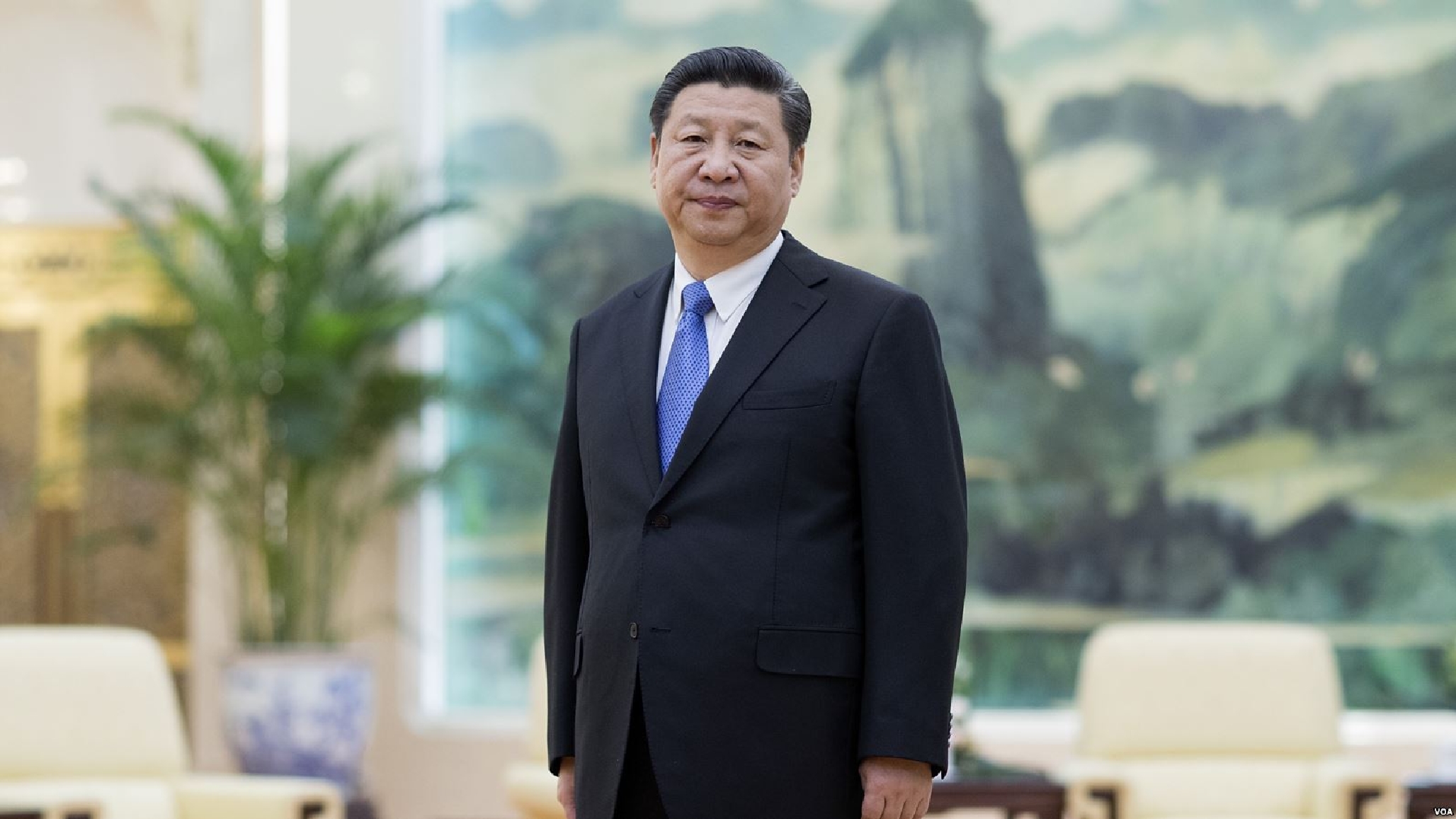
This is especially true when China faces serious challenges and hostility from certain countries, including the United States. This paradox presents a contradiction for many Chinese citizens, including some liberal scholars. They yearn for China to democratize, but also believe that the country needs a strong government to defend its national interests, especially those concerning territory and sovereignty.
The historical memory of national humiliation plays an essential role in creating both paradoxes. China’s collective aspiration for national rejuvenation somehow justifies one-party rule, nationalism and hawkish foreign policy. And the CCP has skillfully used these justifications to serve its interests. For the party, the educational campaign’s most important messages are that only the CCP can make China an independent, united, powerful and wealthy state, and only the CCP can defend China’s national interests and meet foreign competition
Historical memory will certainly continue to play a very important role in China’s nation building, and because of this, the two paradoxes it helps create will persist as China charts its future path.
Chinese citizens yearn for China to democratize, but also believe that the country needs a strong government to defend its national interests, especially those concerning territory and sovereignty.
One cannot simply expect that time will heal all wounds and the shadows of history will eventually fade away. And when a powerful narrative of historical memory is institutionalized and embedded in both the educational system and social discourse, it transforms into the nation’s “national ideas”– collective beliefs on how society ought to act.
National ideas are difficult to change because, like all traditions that are institutionally entrenched, they become ingrained in public rhetoric and bureaucratic procedures. These ideas also profoundly influence people’s perceptions and actions – in conscious and subconscious ways.
A thorough comprehension of Chinese historical memory is essential to understanding today’s Chinese politics and foreign policy analysis. But the stakes are even higher. It is also necessary to understand the thinking of a new generation of China’s young patriots, who shall lead this rising power for the remainder of this century.
Zheng Wang is the Director of the Center for Peace and Conflict Studies and Professor in the School of Diplomacy and International Relations at Seton Hall University. He was a Global Fellow at the Wilson Center.
Cover image: Anti-Japan protesters hold portraits of the late Communist leader Mao Zedong, Chinese national flags, and a poster that reads: "September 18, National Humiliation Day" outside the Japanese Embassy in Beijing on September 18, 2012. (AP Photo / Alexander F. Yuan)
